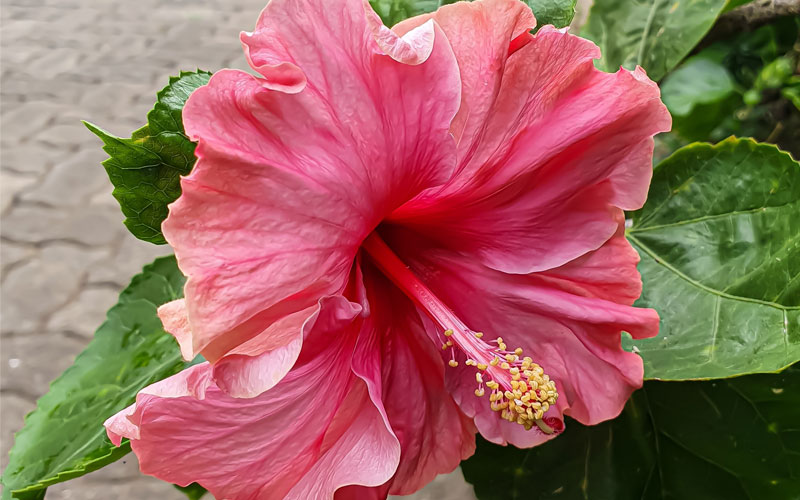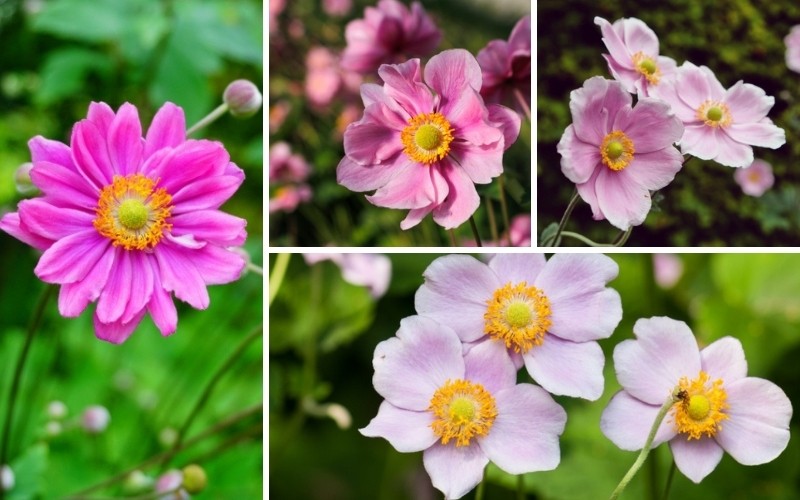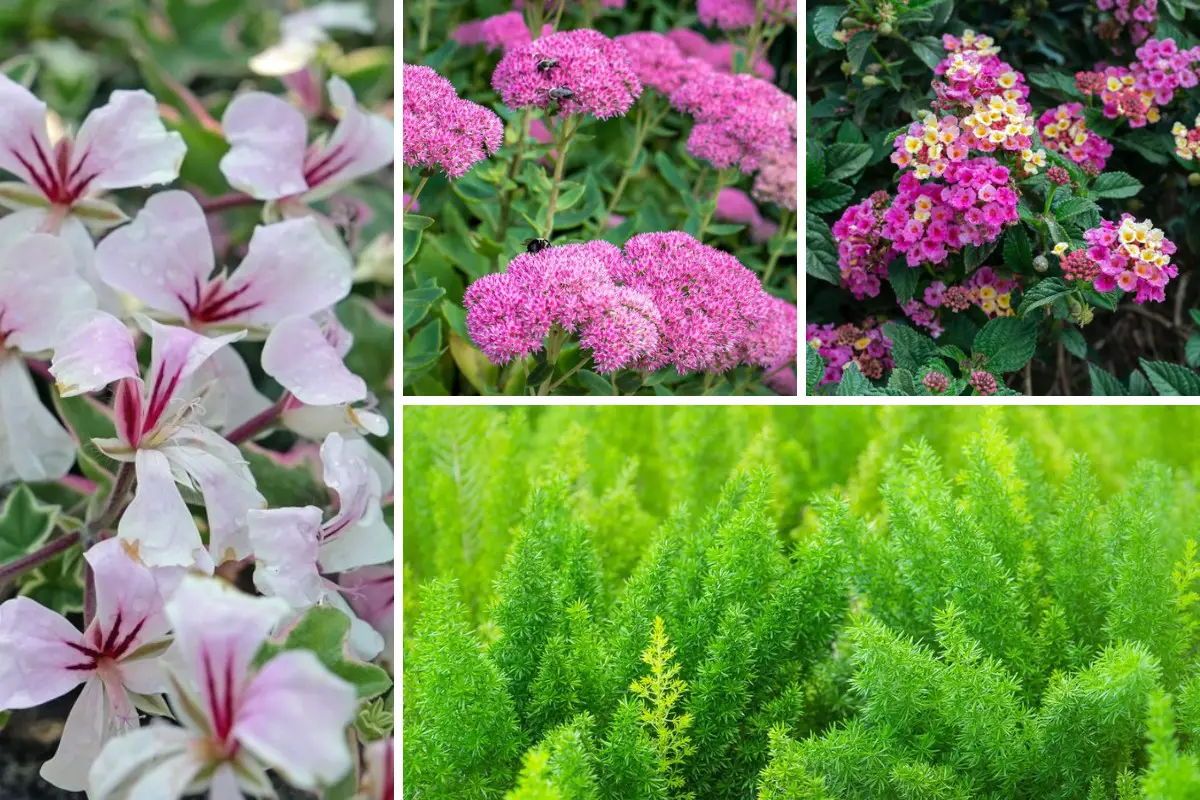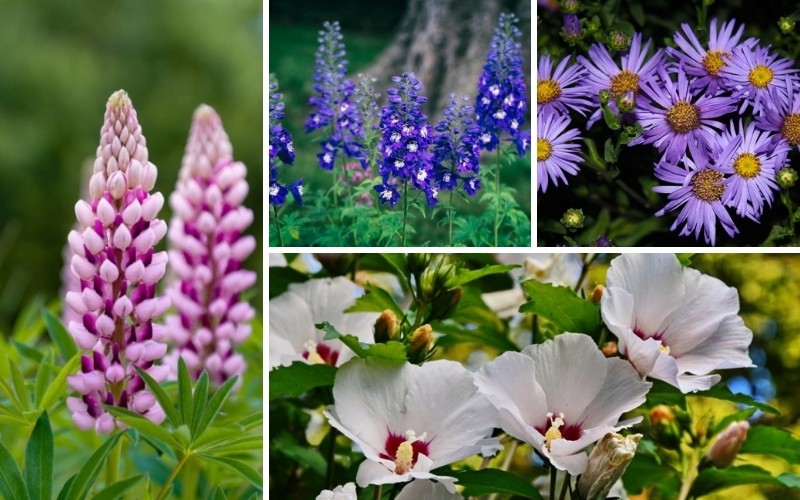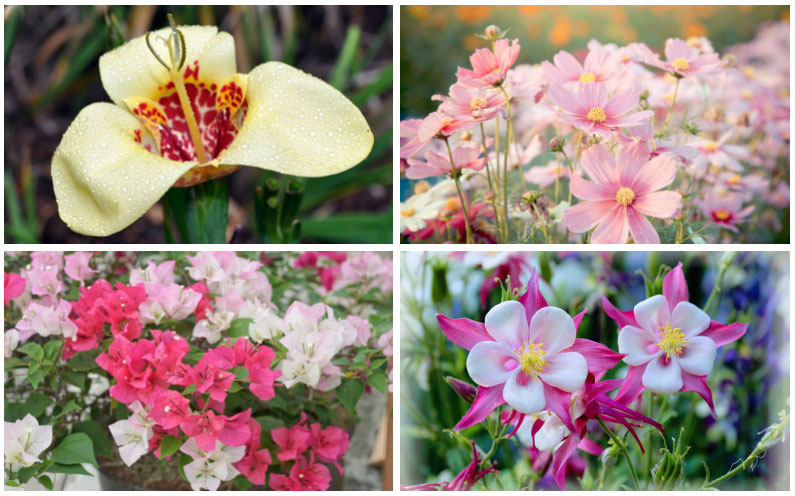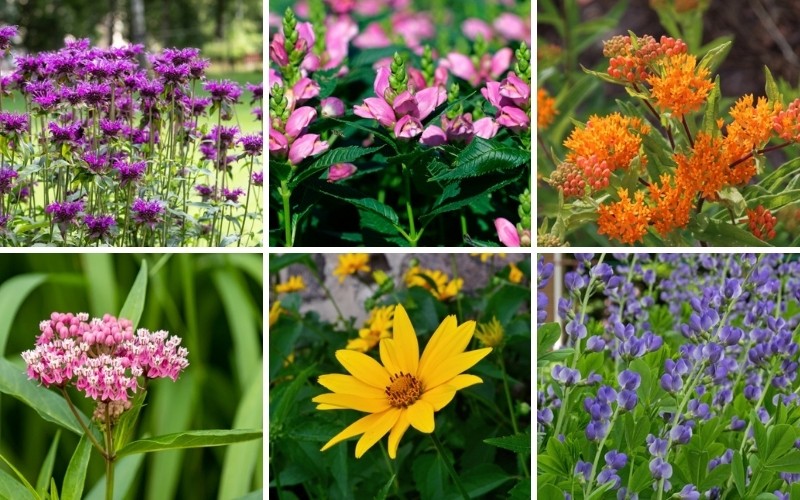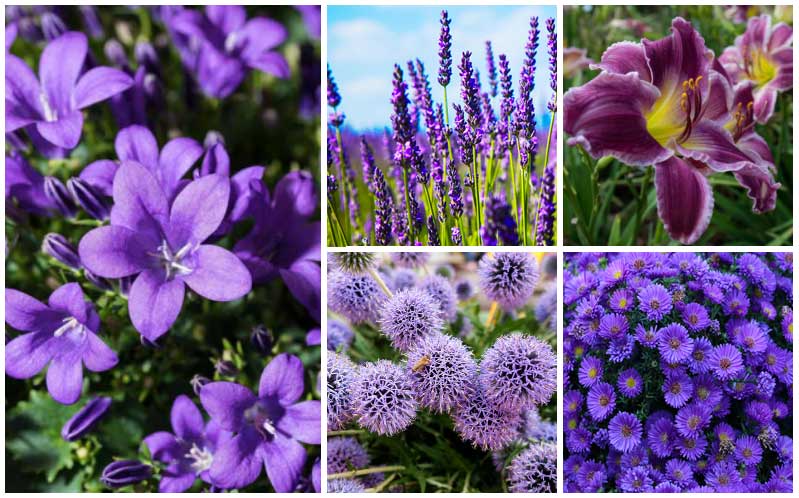
For those who love the color purple in their garden, planting purple perennials is a smart choice. On top of adding a colorful touch to your mostly green landscape, purple perennials do not need replanting which saves you time and money in the long run.
One of the most special features of purple perennials is their color. Purple is a naturally soothing color that calms the soul and clears the mind.
The many different shades of purple perennials make a beautiful addition to any garden and continue to make the garden full of color by coming back each year.
Every purple perennial detailed in this article has its own qualities and beauty that will strengthen the personality of your garden.
Many purple perennials attract certain types of butterflies, bees, and other insects as well as wildlife.
Even household plants can grow fond of your purple flowers, such as cats that have been known to take a particular interest in Lavender plants.
On top of their beautiful and unique colors, they will fill your garden with unique smells, unlike any other plants.
1. Bellflower (Campanula)
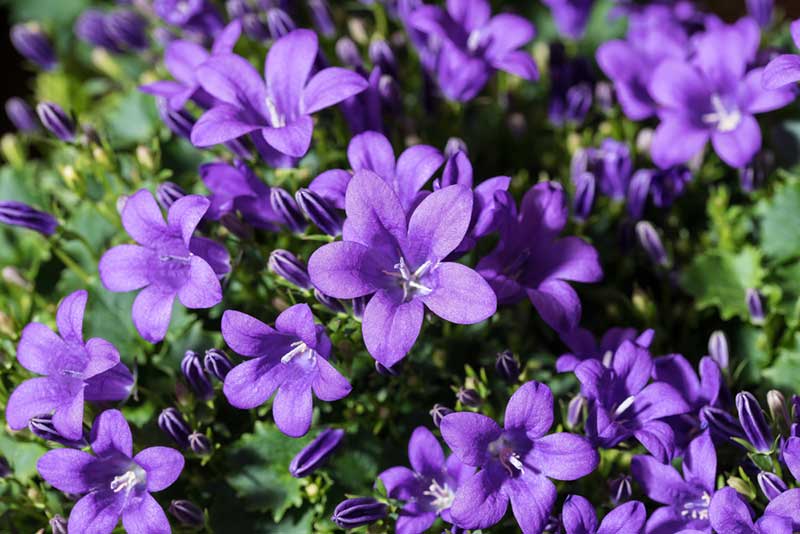
These pretty bell-shaped flowers are generally in blue, or purple hues. They generally are very easy to grow and bloom best in cool-summer areas. For best results, you should sow seeds in Spring. Depending on the species of bellflowers you plant they will range from creeping groundcovers to mound-forming plants, or tall plants.
2. Corydalis
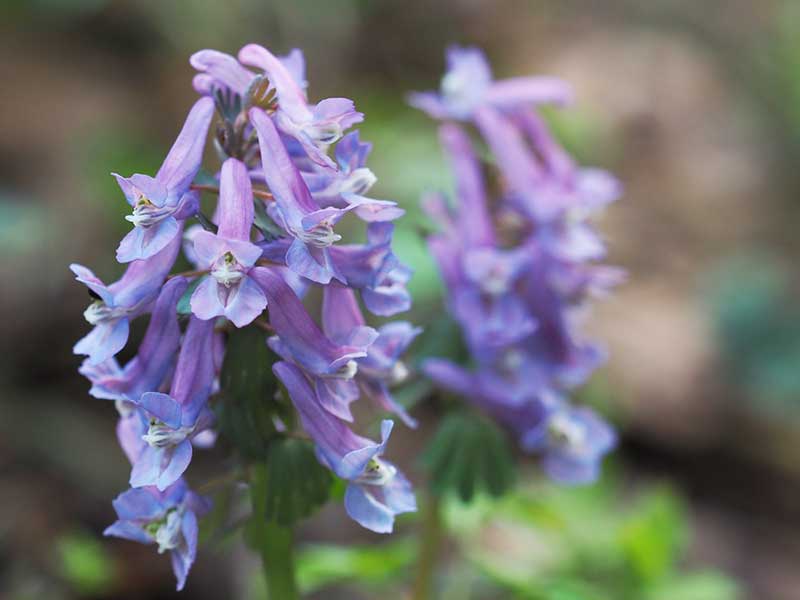
Corydalis grow in large mounds of fernlike leaves with delicate small flowers. It blooms best and abundantly in Spring but can continue to bloom even in the summer and fall. It can grow as tall as 12-15 inches and spread up to 12 inches wide.
3. Geranium
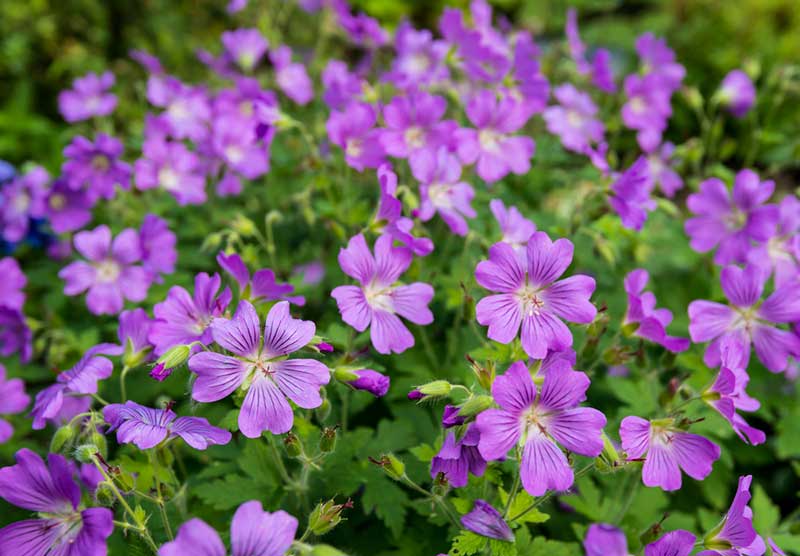
Geraniums are mound-forming plants with a starlike five-petaled dainty flower. It blooms best starting in spring to mid or late summer. It can grow as tall as 2 feet high and spread to about 2 feet in width.
4. Salvia
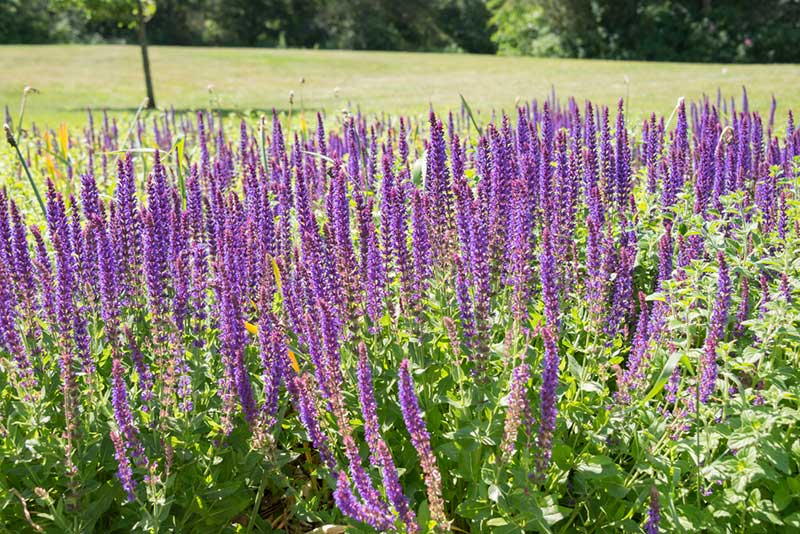
These plants are easy to grow and can be grown in a variety of climates as long as their soil is well-drained or dry soil. Salvia grows on a four-sided stem, paired leaves with spikes of tubular, two-lipped purple flowers. They bloom best in the summer and prefer full sun or light shade. They can grow anywhere from 18-48 inches tall, making these plants a serene look in your garden.
5. Tradescantia
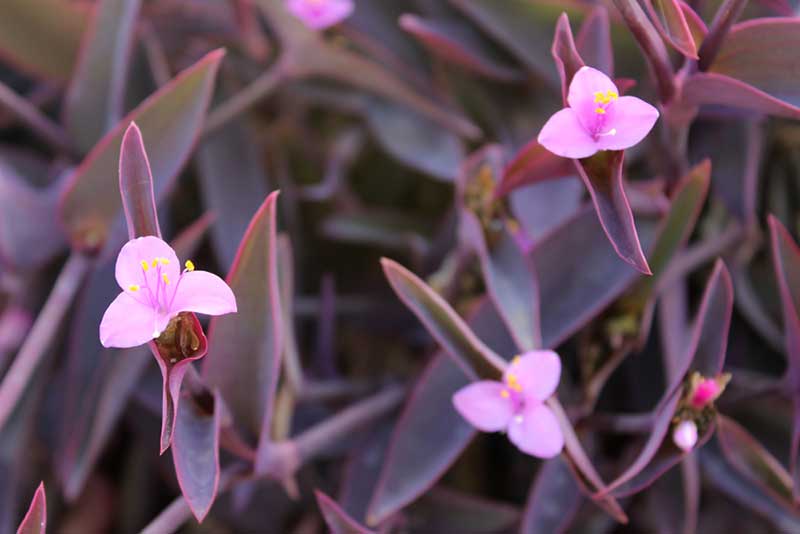
Tradescantia is a grass-like, arching foliage type of plant with an upright stem flower. Though their flowers only last a day this plant produces an abundance of flowers to keep you enjoying your blooms. They grow and bloom best in full sun with well-drained, moist soil from early summer through early fall. They grow from 1-2 feet tall and spread 18-36 inches wide.
6. Verbena
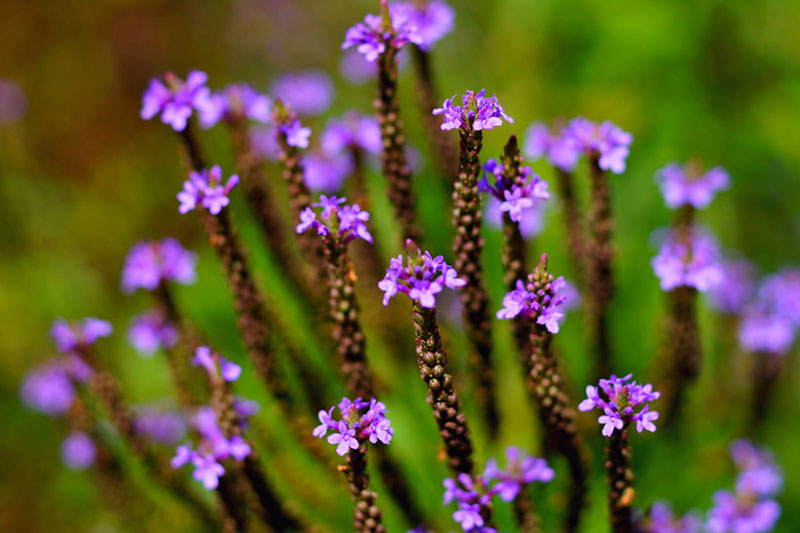
If you have hot weather plant Verbena in your garden. These plants thrive in hot, humid summers and bloom through mid-fall. They have four-sided stems with spikes of funnel-shaped purple flowers that sprout between mounding greenery. They grow from 6-18 inches tall and spread from 18-36 inches wide.
7. Veronica

Veronicas are a great, easy-to-grow choice that will thrive and adapt to various conditions. They bloom from late spring through summer with a narrow spike flower and beautiful green foliage.
8. Anemone
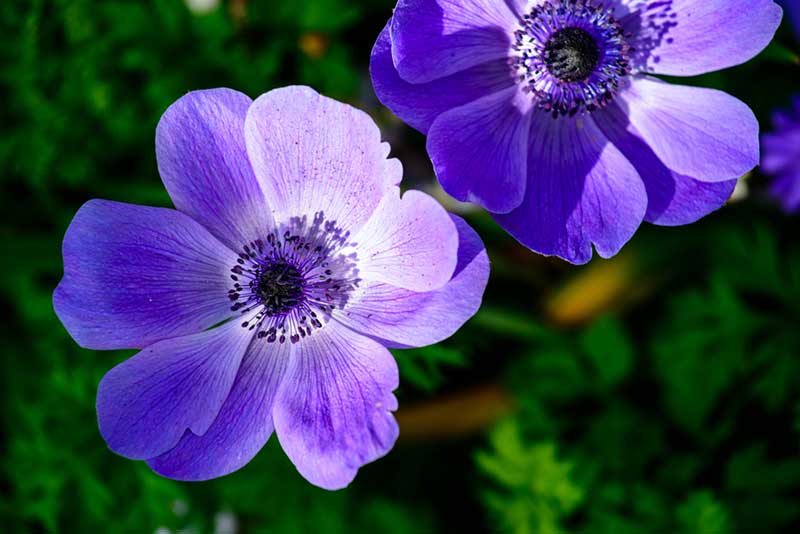
These dainty flowers are spring-blooming plants that will add beauty and charm to your garden. They bloom best with some shade and rich, moist, slightly acid soil.
9. Iris
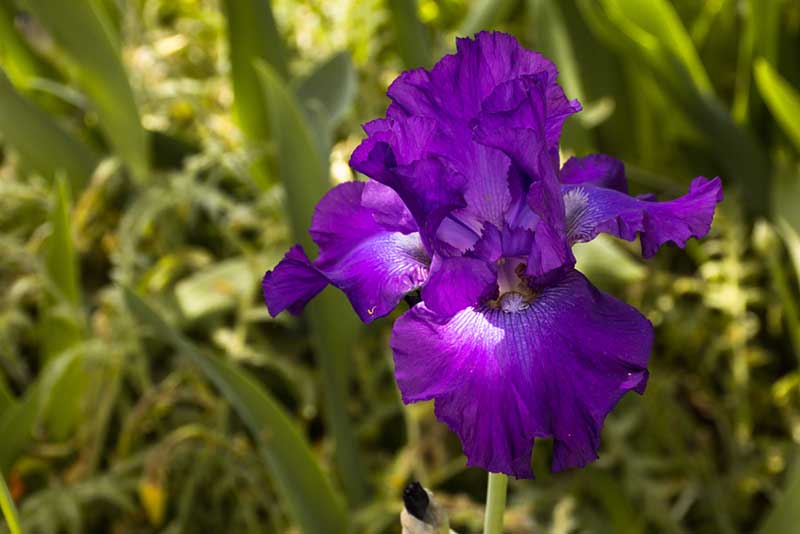
These tall-stemmed flowers will bloom from late spring through early summer and thrive in full sun. They can grow from 4-40 inches tall and spread 10-24 inches wide. They are a beautiful contrast from flower to green foliage that will have all mesmerized by their beauty.
10. Phlox
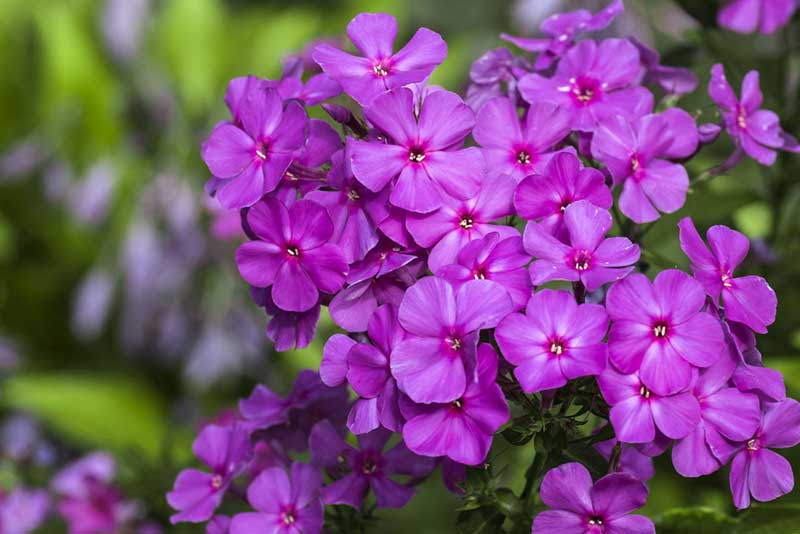
These dainty bunches of flowers bloom in clumps that add pure color to any garden. Their five-petaled flowers grow above their green foliage and cover it with color. They grow between 6-15 inches tall. They bloom best in the Spring with average, drained, slightly acid to alkaline soil.
11. Delphinium
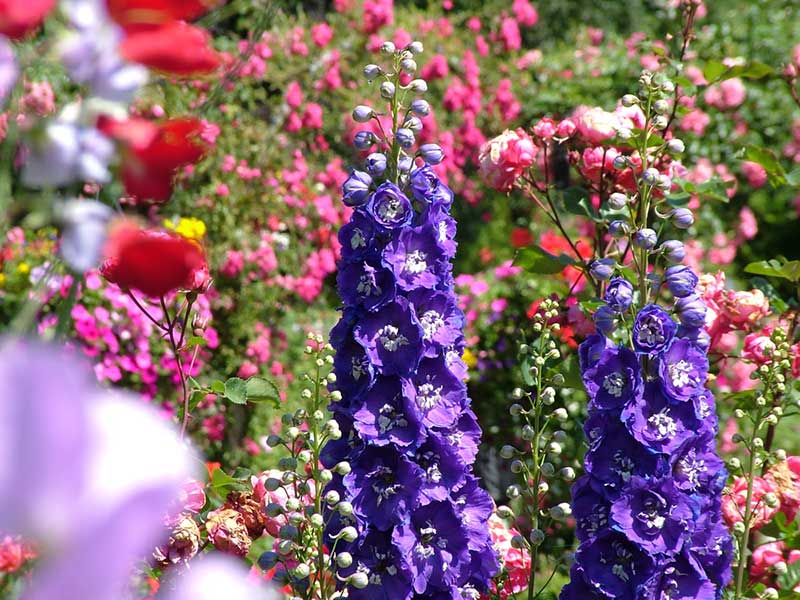
This summer-blooming plant needs full sun, or very little shade to sprout into the tall stalk with beautiful purple flowery blooms it produces. These blooms attract nature’s beauty like the butterfly or hummingbirds. They grow 3-4 feet tall.
12. Aster
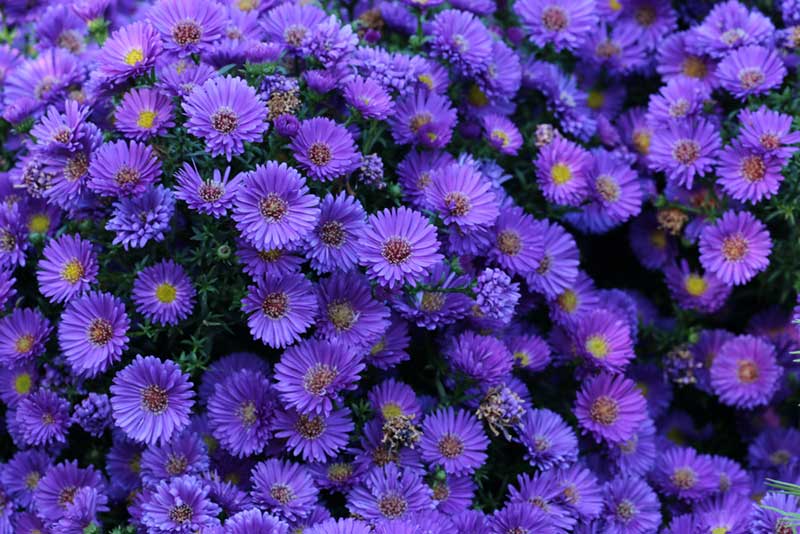
These summer-blooming flowers filled with many petals are just a breath of fresh air. They prefer full sun and average to fertile moist but well-drained soil. They bloom in clusters above a 2-3 foot stem and can range from 30-36 inches wide.
13. Boltonia
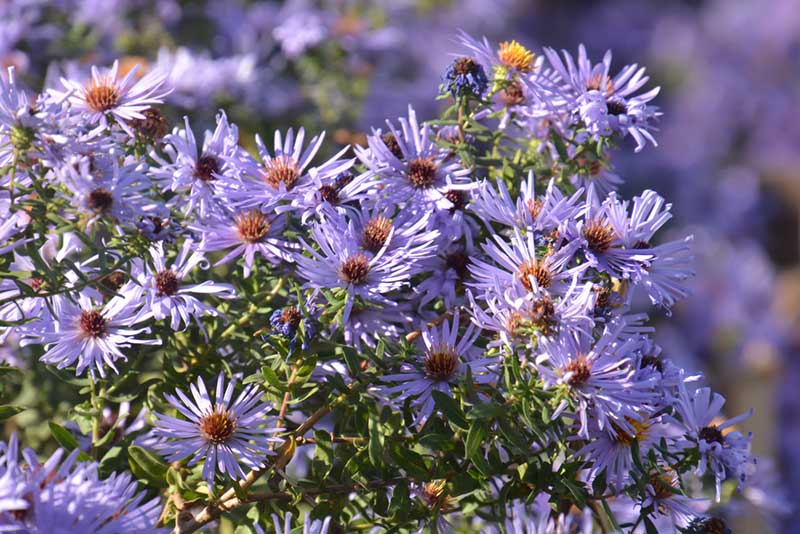
Boltonias are late summer bloomers and thrive in full sun. They resemble baby’s-breath but give a look of flowy bunches of flowers just filling your garden for 3-4 feet wide. They are 2-5 feet tall and should be planted in an area that has space to be appreciated for its overwhelming bunches of flowers.
14. Chrysanthemum
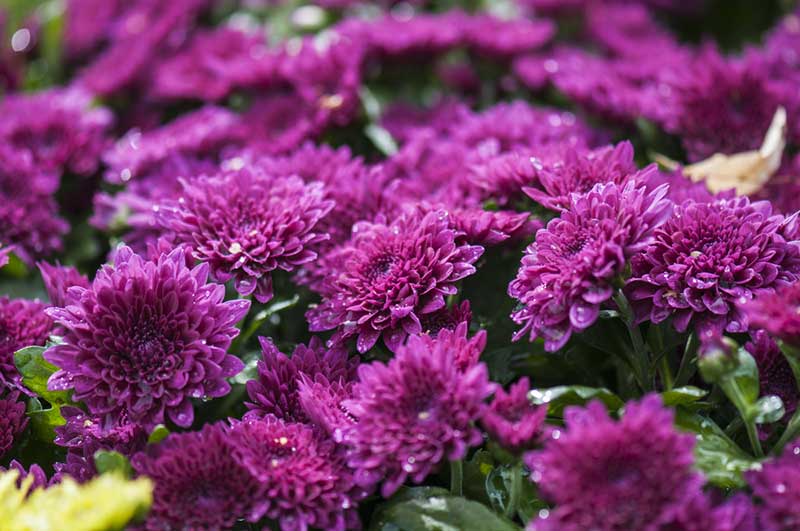
These late summers to late fall blooming beauties look a lot like daisies and grow in mounds. They prefer full sun and grow 1-3 feet tall and 2-3 feet wide. These bunches of flowers are sure to cause pure delight in any garden.
15. Sedum
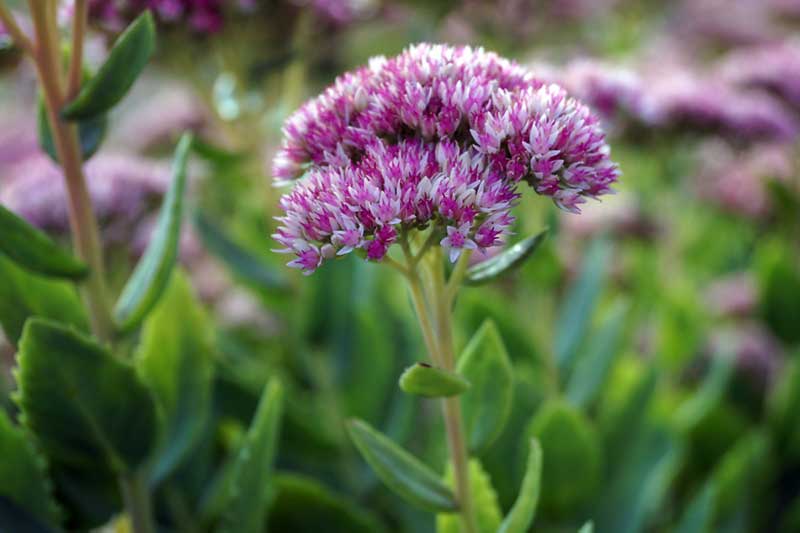
Flowers on the Sedum plant grow on thick-like stems with large leaves in the late summer to late fall seasons. They grow well in full sun to partially shady areas. They can grow as tall as 4-24 inches tall and spread from 12-48 inches wide. These dome-like flowers can cheer anyone up with their full-rounded bloom.
16. Baptisia
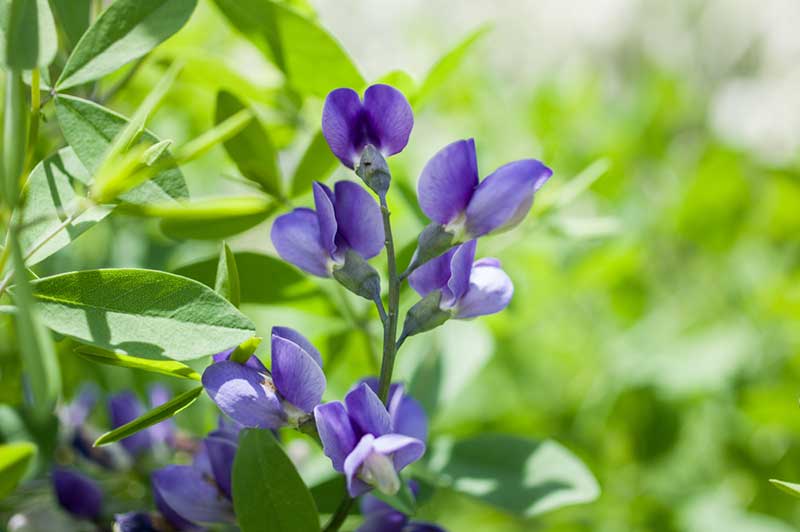
These low-maintenance plants are a great addition to a garden with their tall lupinelike spikes with a pea-shaped stems of flowers. They tend to grow slowly but will bloom for a long time. They prefer full sun and bloom best from late spring through early summer.
17. Purple Daylily
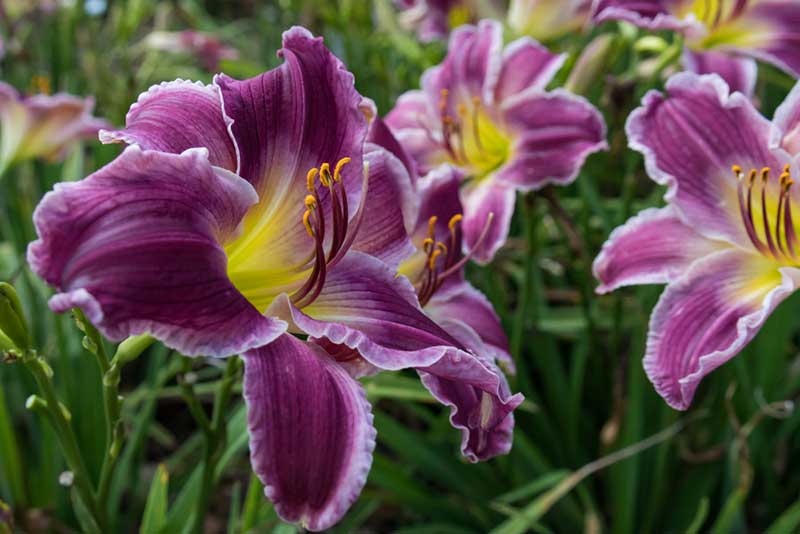
Daylilies are a very popular, pretty choice for a garden with their green grass-like stems and trumpet-shaped bloom. They bloom in various seasons but prefer full sun and humus-rich well-drained soil. They stand from 10-72 inches tall and can spread 1-5 feet in width.
18. Bergenia
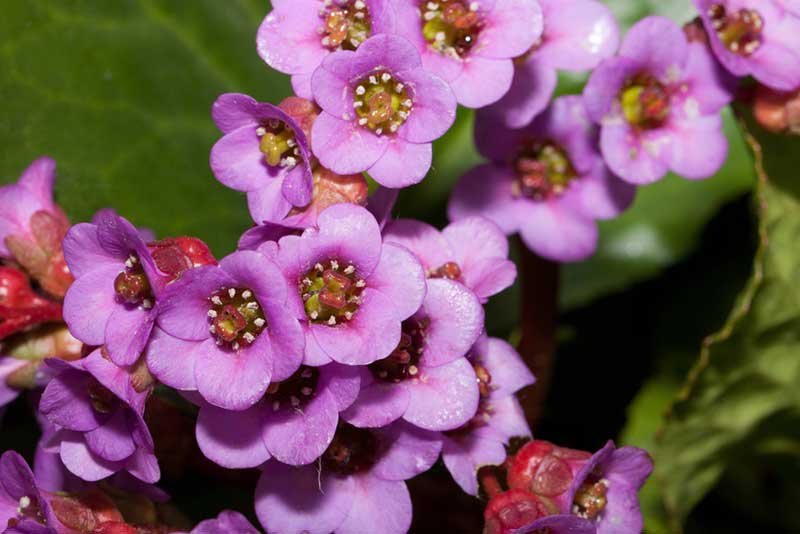
These plants have one of the most amazing leaves, they are round and large with a lightly toothed edge. Their bloom is an open rosette with a beautiful five-petaled flower. These plants are versatile in their season of bloom and prefer full sun with humus-rich, moist but well-drained soil.
19. Thalictrum (Meadow Rue)
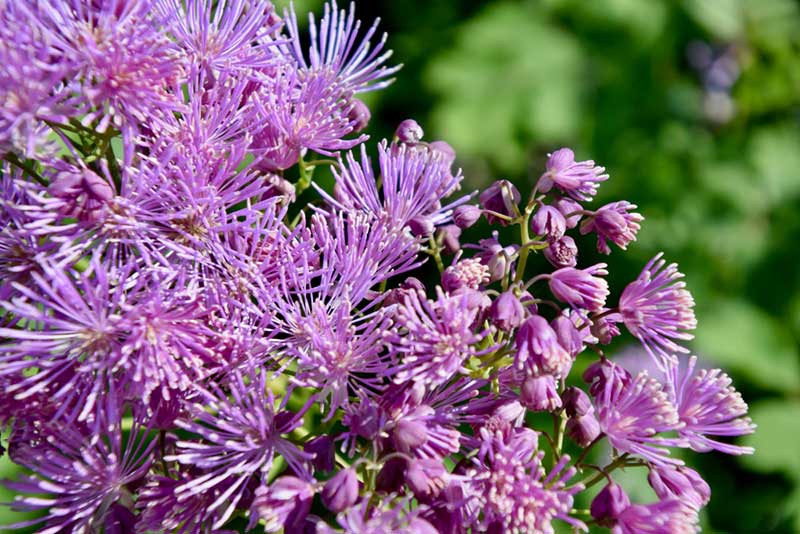
Thalictrum is a low-maintenance plant that has thin stalk-like stems with wedge-shaped toothed leaves. Their bloom is a large fuzzy flower puff that will cheer up any garden. They grow best in full-sun gardens.
20. Monkshood
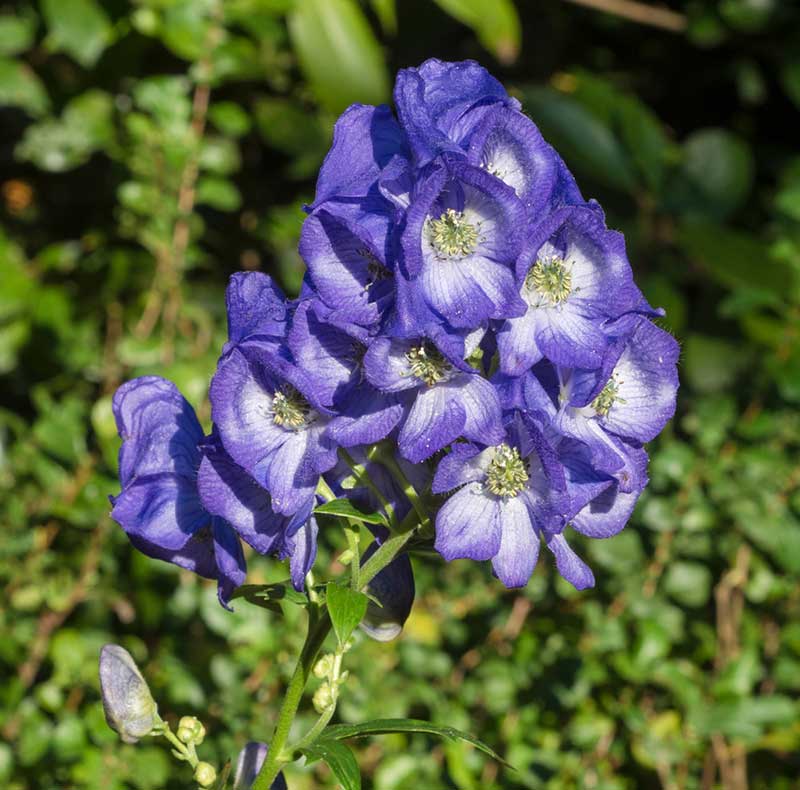
Monkshood has a very simple thin green stem where the flower blooms from in a five-petaled bloom similar to a helmet. They grow best in full sun and can grow as tall as 2-3 feet and span about 1-2 feet wide. They bloom best in late summer through early fall.
21. Blazing Star
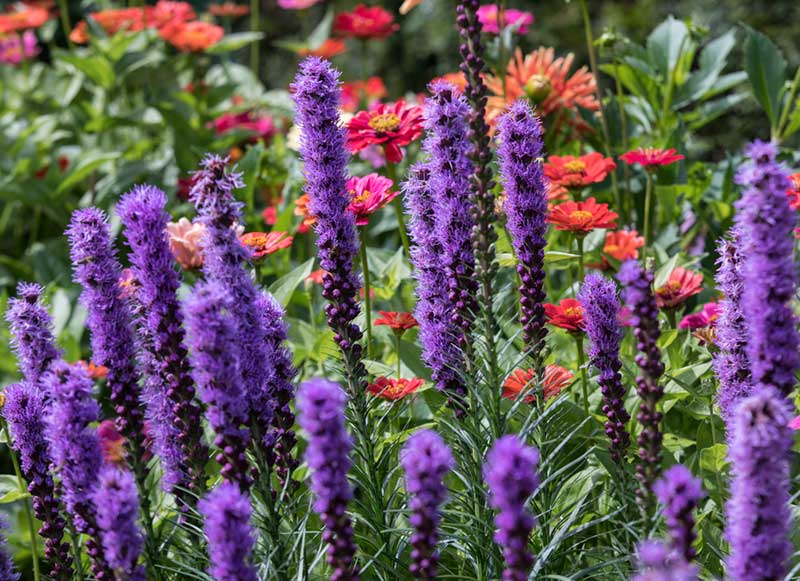
These feathery-looking spike-like flowers are just divine to the human eye. They bloom from dense tufts of narrow grass-like basal-looking leaves. They thrive in full sun with any type of soil from mid-summer through early fall.
22. Lavender
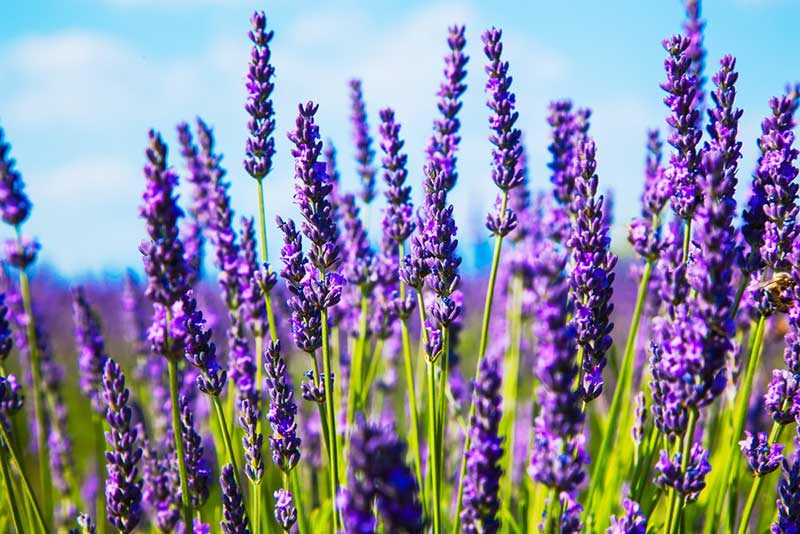
This delightful fragrant filled, relaxing bloom is a must. This plant has grayish or silvery evergreen leaves leading up to their spike-like fragrant-filled blooms. They bloom best in late spring through late summer in full sun with poor, well-drained soil.
23. Millenium flowering onion
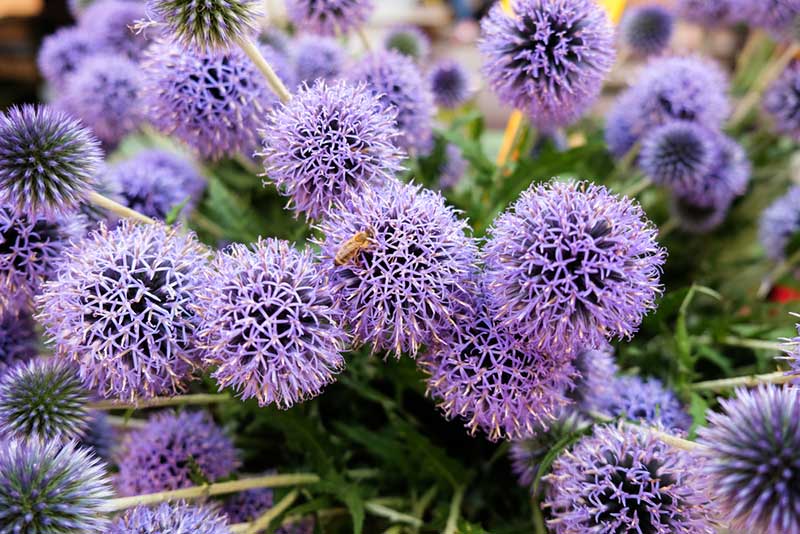
These gorgeous onion-shaped blooms look as pretty as can be in any garden. They bloom best in mid-summer and can grow anywhere from 15-22 inches tall. These purple perennials have shiny grass-like bunches of green foliage. They will attract butterflies into your garden making it a serene environment.
24. Russell blue/purple Lupine
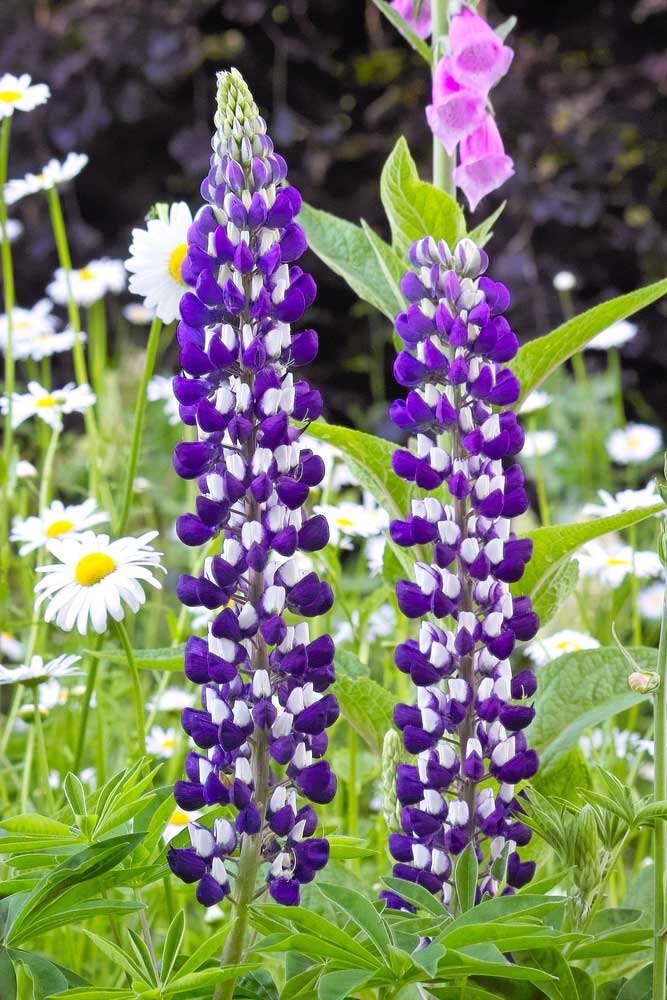
Russel Blue Lupines bring the garden to life with color in late spring or early summer. The upright stems produce a spire of blooms that open at the bottom and work their way upward. Growing to heights of 36 to 48 inches, the Russel blue is a bicolored lupine with bluish-purple and white flowers. It grows in full sun or partial shade and attracts bees and other pollinators to the garden.
These lupines are hardy in USDA plant hardiness zones 7 to 9 and prefer evenly moist soil. Although they will grow in nearly any soil, they prefer clay soil.
25. Anise hyssop (Agastache foeniculum)
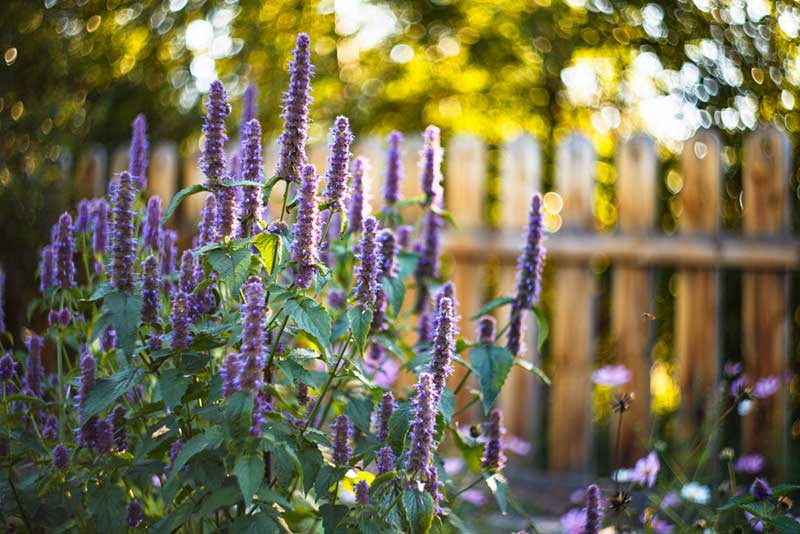
Also known as butterfly mint, anise hyssop ‘blue fortune’ has distinctive medium to small flowers atop attractive foliage. It blooms from summer through fall if the old flowers are deadheaded when they fade.
Anise hyssop thrives in well-drained soil in full sun to partial shade but does not tolerate heavy soils. Once established, this plant is drought tolerant and blooms profusely, attracting hummingbirds, butterflies, bees, and other flying insects.
It grows to heights of 2 to 3 feet with a width of 18 to 24 inches. It is hardy in USDA plant hardiness zones 5a through 9a.
26. Mistflower (Conoclinium coelestinum)
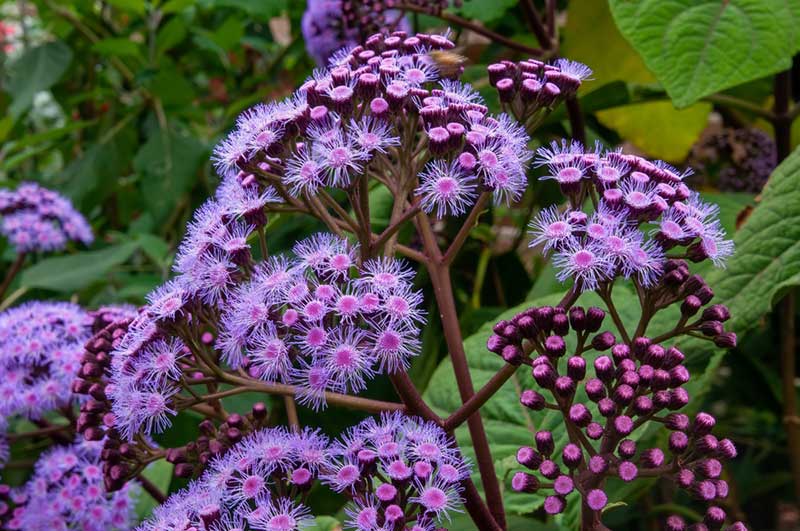
This showy plant bears masses of fuzzy purple flowers atop short stems held above attractive triangular-shaped foliage. It does best in partial shade but will perform well in full sun as long as it is watered adequately. It likes moist, well-drained soil and tolerates nearly all soil types.
It grows to heights of 1 to 3 feet and blooms from mid-summer until frost. It is hardy in USDA plant hardiness zones 5 through 10.
Mistflower can be invasive as it spreads quickly, creating a dense ground cover. Try Mistflower to add a splash of purple to partially shaded nooks in your yard.
27. Allium
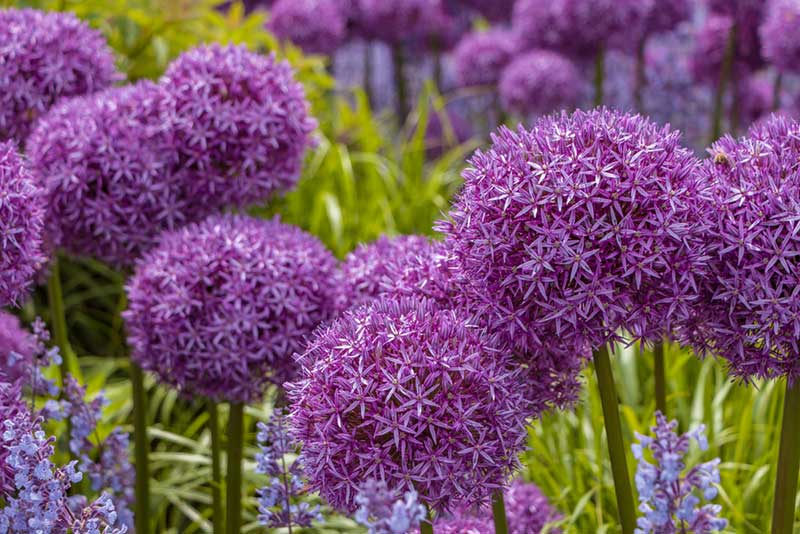
Allium, also called Ornamental Onions, produces globe-shaped, purple blooms atop a slender stalk. It blooms in late spring or early summer and is a great way to bridge the gap between spring bloomers and summer bloomers.
Plant allium in full sun in average to poor soil. It likes moist, well-drained soil but will suffer if the ground remains wet during the winter.
Depending on the cultivar, alliums grow to heights of 12 to 36 inches and may spread to 18 inches. These purple perennials produce larger clumps each year. Depending on the cultivar, they are hardy in USDA plant hardiness zones 3 through 8.
28. Catmint
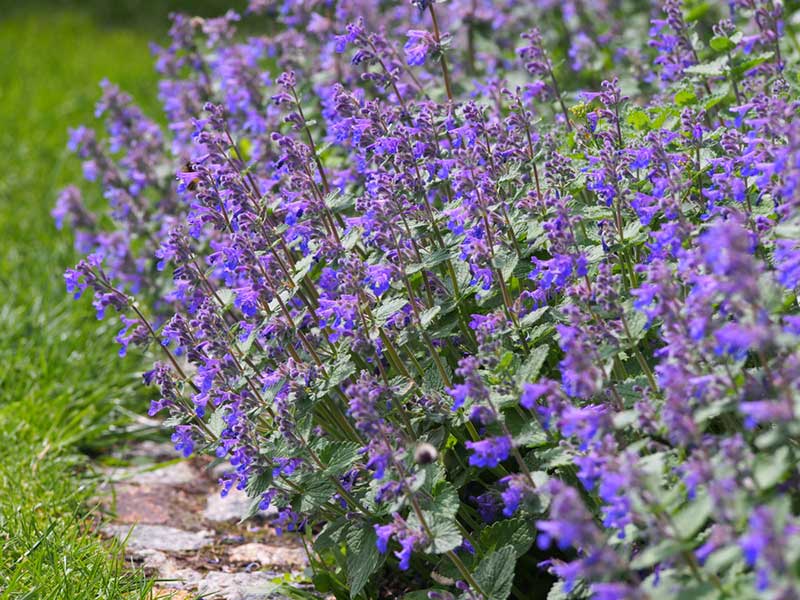
Catmint is an aromatic herb that blooms profusely from late spring through summer. While the purple blooms are only 1 in diameter, they create a dazzling display of color. Catmint attracts bees and butterflies to the garden creating a buzz of activity. Deadheading the spent blooms will prolong the blooming period of catmint.
Catmint is not fussy about soil type and will grow in nearly any soil as long as it is well-drained. It does best in a sunny location that receives at least 6 hours of sunlight a day but will grow in less light. It is hardy in USDA plant hardiness zones 3a through 8b.
29. Butterfly Bush
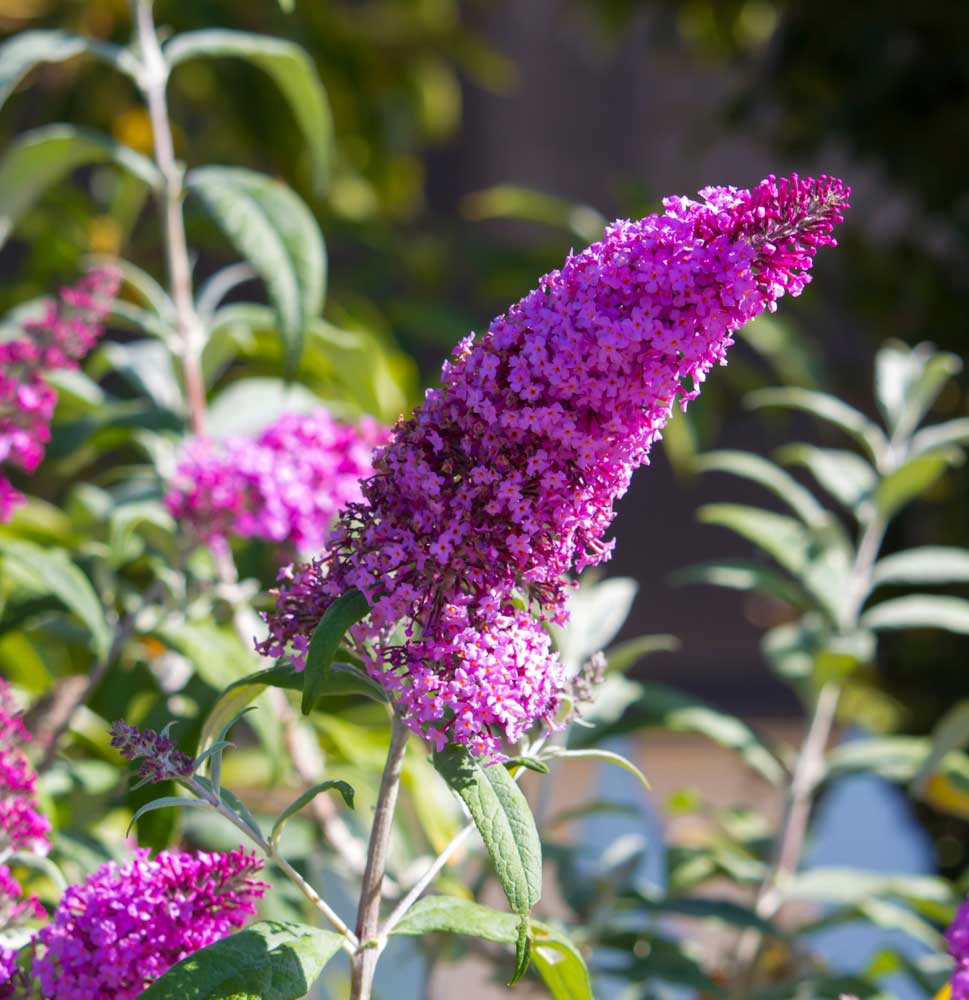
Butterfly bush, also known as summer lilac, blooms from summer through fall with cascading flowerheads in shades of purple, pink, and white, depending on the cultivar. The conical-shaped flowerhead comprises hundreds of tiny flowers similar to traditional lilacs.
Butterfly bush ranges in height from 3 to 15 feet, depending on the cultivar. Plant butterfly bush in full sun in average soil that drains well. It is hardy in USDA plant hardiness zones 5 through 10.
30. Purple Clematis
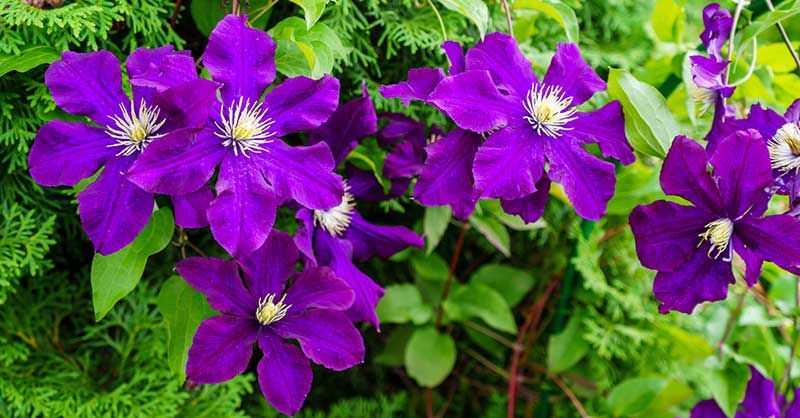
Purple clematis creates a mass of color when trained to grow up a trellis. The cheery flowers can reach a diameter of 5 to 6 inches and contrast nicely with the green foliage. Bloom time varies as clematis are classified as spring bloomers, repeat bloomers, and summer and fall bloomers.
Most clematis plants need full sun, but some varieties will grow in partial shade. They like moist, well-drained soil and can reach heights of 10 to 12 feet with a spread of 4 to 6 feet. Most clematis vines are hardy in USDA plant hardiness zones 3 through 9, but some varieties are also suitable for zones 8 through 11.
31. Purple Coneflower
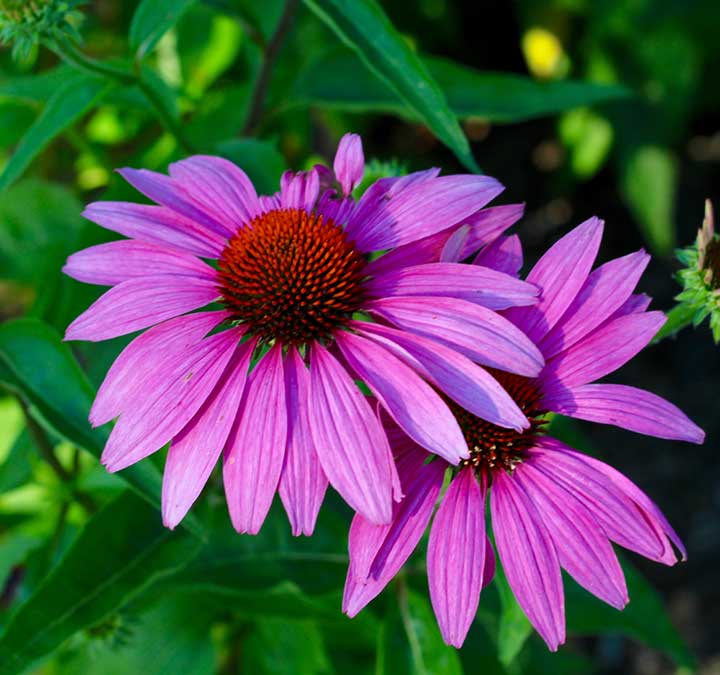
Purple coneflower is the mainstay of many perennial beds as its large daisy-like blooms are both dramatic and long-lasting. Coneflowers perform well in nearly any soil but do best in humus-rich, well-drained soil. They prefer full sun for at least 6 to 8 hours a day. Some afternoon shade is preferred in southern climates as the bright sun can fade the lovely flowers.
Coneflowers are hardy in USDA plant hardiness zones 3 through 9 and bloom from early to mid-summer until the frost in the fall. Deadheading faded blooms keep these flowers looking good all summer.
32. Hydrangea
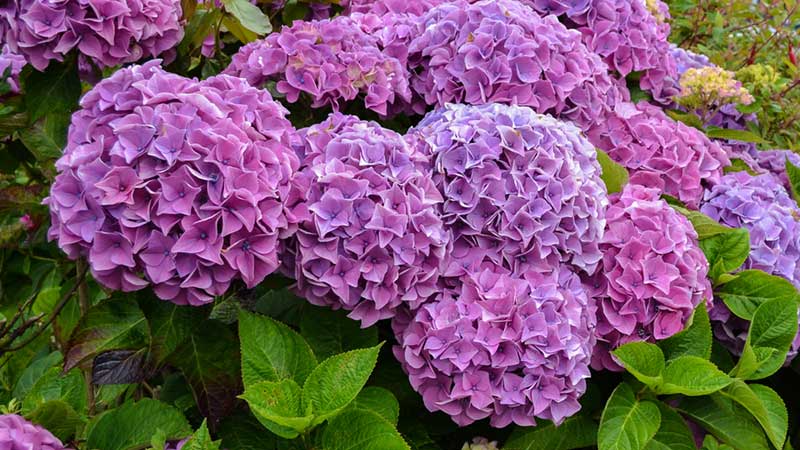
Growing purple hydrangeas in the perennial bed is sure to attract the attention of envious neighbors as these flowers are an unusual color in hydrangeas. While many hydrangeas are in shades of white, pink, and blue depending on the soil’s acidity, purple hydrangeas are genetic and will hold their deep purple coloring as long as there is aluminum in the soil.
Hydrangeas produce large clusters of blooms in a globe-shaped head and typically bloom in mid-summer. They prefer morning sun and afternoon shade and do best when planted in a sheltered location. They like moist, well-drained soil and do not tolerate soggy soil. Hydrangeas are hardy in USDA plant hardiness zones 3 through 11, depending on the cultivar.
33. Russian Sage
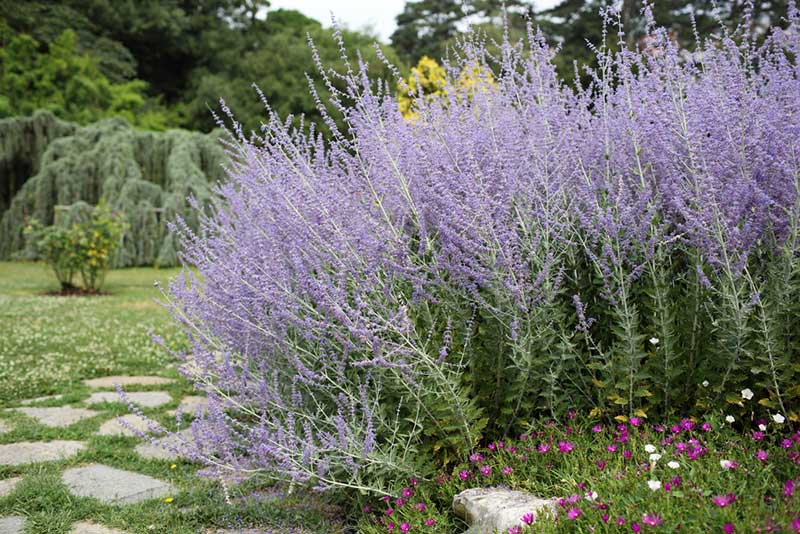
Russian sage brings the flowerbed to life in early summer with its upright stalks covered with tiny lavender or purple blooms. The gray-green foliage makes a delicate backdrop and creates the illusion of softness. Russian sage appears similar to lavender and emits a definite herby fragrance.
It grows best in full sun for 6 to 8 hours a day in average soil. It is drought-tolerant and requires little care. It grows to a height of 2 to 3 feet with a spread of 18-24 inches. Plant Russian sage in clusters to create an airy feel to the flowerbed.

